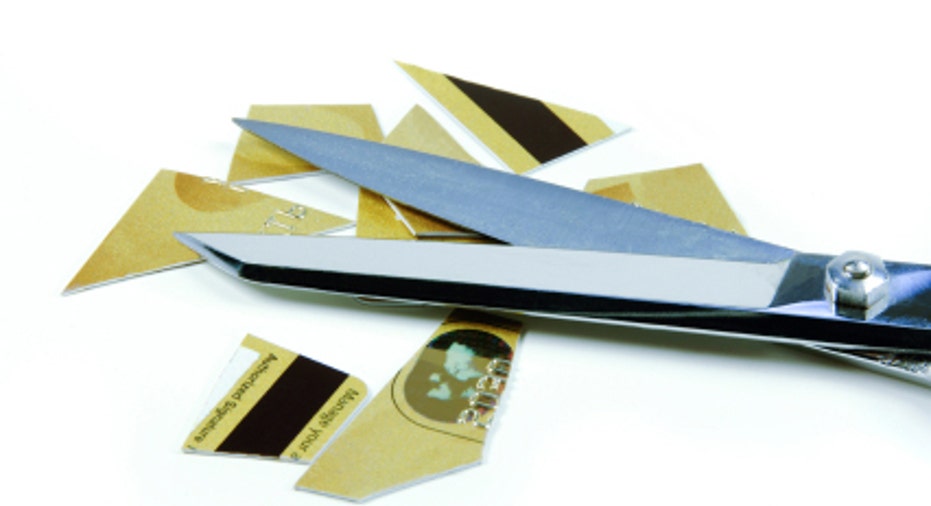Getting Debt Free Means Stashing the Plastic

Dear Opening Credits,
Hi, Erica. I was reading your recent article, "Why getting debt help may hurt access to new credit," and am wondering why you did not suggest getting, at least temporarily,a secured credit card. Years ago when I had a similar problem that's what I did to begin using credit again while improving my credit picture.
- Dave
Dear Dave,
Well, first a mighty thank you for reading my column and taking the time to write! My aim is always to get the right information out to the people who need and ask for it, and I value feedback.
For the readers who are unfamiliar with the letter in question, a quick summary: Our reader, Sheila, is currently working with a credit counseling agency to satisfy her debts. She wanted to find out if her participation on the agency's payment plan has been the reason banks have turned her down for new credit cards, and how she can get a one if that's the case.
You're right that I did not specifically suggest she pursue a secured credit card. I do think these collateralized credit instruments are terrific as they allow people with unestablished or damaged credit histories to start charging.
Some creditors balk when they see that a third party is involved in repayment and might deny an unsecured account. They tend to be more forgiving for secured products, however. In general, all one would need to obtain one is some cash to put down in a special savings account. The issuer then grants a credit line close to or even a little above that sum. With regular, responsible use, the cardholder can create a positive borrowing and repaying pattern.
But that's when the person is truly ready to start again. If you're on an agency's plan, you promise to not enter into any new credit obligations, and to close the accounts that they're assisting you with. As a former credit counselor, I know the value of concentrating on one thing when you're in the red and that's working your way into the black. No access to credit helps break bad habits by forcing you to only spend what you have in the bank or in your wallet. After all, if you can't manage cash, you can't manage credit.
I would say the same thing to people who aren't with an agency, but who want to delete their balances and change their negative charging ways. Focus on sending the maximum to your creditors and stash the plastic while you're at it. When your liabilities are at zero, pick the cards up again and charge what you can and will pay off in 30 or so days. If your accounts are closed, you'll need to get new ones.
Again, secured credit cards are fabulous, but they aren't the only neat tools in the box. I'm always fascinated by the way people shop for credit. Most do so in a very passive way -- by either waiting for offers to come to them (which is just the tip of the lending iceberg) or by applying to just the most well-known credit issuers. Yet at any given time there are hundreds of credit cards on the market! While it would be awfully laborious to read though them all, you should at least check out those that are most appropriate for you.
That's why I suggested (and continue to advocate for) CreditCards.com's CardMatch system. Based on your credit history and needs, you can view a wide variety of credit products that you are likely eligible for. Assuming Sheila took my sage advice, she would have seen all her options -- including those very cool secured credit cards that I like so much.



















